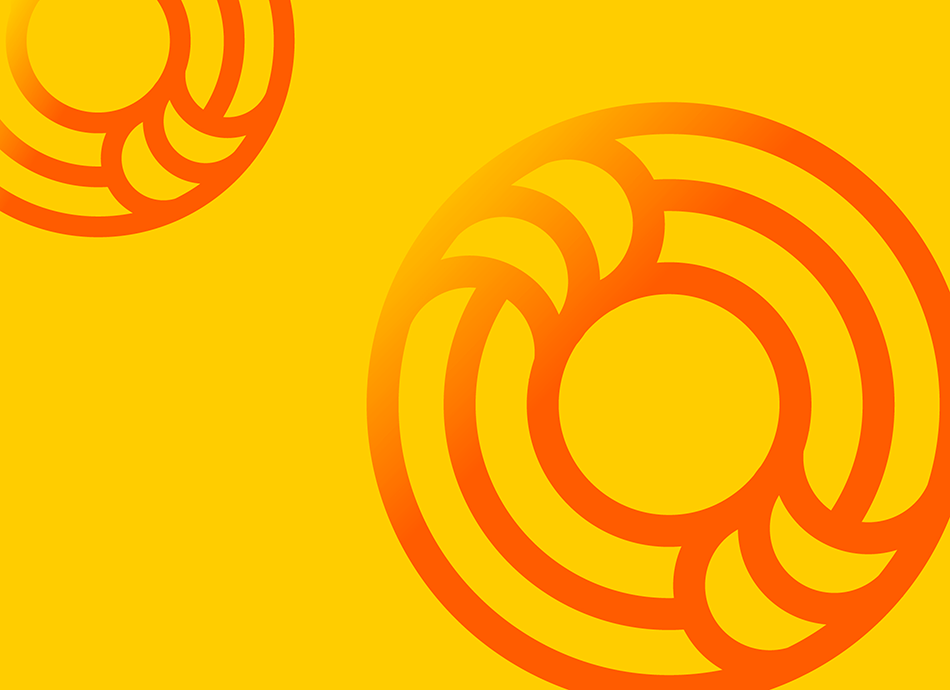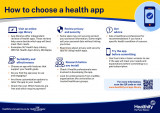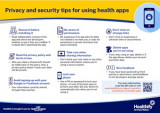You can now add Healthify as a preferred source on Google. Click here to see us when you search Google.
Smart ways to use health tips from social media
Smart ways to use health tips from social media
- These days social media isn’t just for keeping in touch — it’s also where many people find health tips, fitness ideas and wellness trends.
- But with so much information out there, it can be hard to know what’s true and what’s not.
- Here are some simple ways to use health tips from social media safely and wisely.

Social media can be inspiring, but it’s no replacement for real medical advice. While it’s great for motivation or hearing others’ experiences, you should always verify health information you see on social media with a trusted medical source. What works for one person may not be safe or effective for another. Some tips may be based on trends, rather than science, and could even be harmful. Remember anyone can post health content online, even if they don't have medical training. Because catchy or “natural”-sounding advice spreads quickly, misinformation can go viral before the facts catch up. Here are some tips for using social media health advice safely.
Check the source
Always look for content shared by licensed experts like doctors, registered dietitians, or therapists. Not all advice online comes from professionals. A verified checkmark can be helpful, but it’s not a guarantee of accuracy. A blue checkmark means a social media account is real and belongs to who it says it does, but it doesn’t guarantee the information is correct. Some users can now pay for a checkmark, so it's still important to think carefully about what they post. Always ask: is this person trained to give health advice?
Look for science, not opinions
Check where the advice comes from. Reliable health advice is based on research and comes from trusted sources. Be careful of posts that:
- promise fast results or “miracle cures”
- share personal stories with no proof or sources
- make vague claims like “experts say” but don’t name anyone
- suggest you stop prescribed treatments in favour of “natural” or “alternative” cures without any proven evidence.
Always check before you share. Is it true? Only share if you’re sure it’s accurate. Personal stories are interesting, but they’re not the same as expert advice. If it sounds too good to be true, it probably is.
Beware of sponsored or influencer content
Many influencers are paid to promote products or ideas. That doesn’t mean their advice is bad, but it does mean their motivation might not be your health.
- Always ask yourself: “Are they trying to sell me something?”
- Watch out for words like “detox,” “cleanse,” “biohack,” or “chemical-free.” They may suggest health benefits but can lack evidence or clear meaning.
- Just because a post is popular, doesn’t mean it’s true.
Don’t self-diagnose
It’s easy to fall into the trap of Googling symptoms or watching health-related videos and thinking you have a certain condition. Noticing what you feel in your body is important but can have many possible causes. Diagnosing yourself based on what you read or see online can lead to wrong conclusions and unnecessary stress. If you’re worried about your health, talk to your healthcare provider. Working out what's going on together means you can then manage your own health better.
Watch for red flags
Some posts with the following warning signs may contain misinformation. Be cautious if you see:
- claims that something can “cure everything”
- anti-vaccine or anti-medicine messages
- fear-based content or pressure to act quickly
- no medical credentials or suspicious profiles.
Be aware of AI generated images
AI generated images can be used to create false or misleading visuals, such as fake medical scans, fabricated "before and after" treatment photos, or images of people endorsing health products they never used. This can spread health misinformation and make it harder for the public to know what's real.
Talk to your healthcare provider
If you find something online that interests or worries you, bring it up at your next appointment with your healthcare provider. They can help you figure out if it’s helpful, harmful, or just hype.
Factsheets – using health apps safely

How to choose a health app
Healthify He Puna Waiora, NZ

Privacy and security tips for using health apps
Healthify He Puna Waiora, NZ
Credits: Healthify editorial team. Healthify is brought to you by Health Navigator Charitable Trust.


